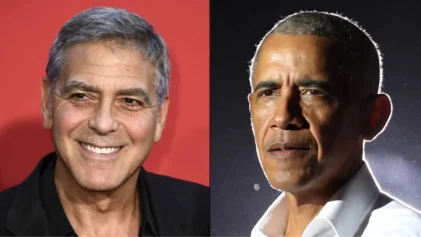Black women were the focus of President Obama’s remarks to the Congressional Black Caucus Foundation at its 45th annual gala in Washington, D.C. on September 19.
The president’s remarks come at a time when Black women can point to a number of successes, such as Viola Davis making history as the first Black woman to win an Emmy for lead actress in a dramatic series. And yet these successes come in the midst of continued discrimination and lack of opportunity for Black women, a cradle-to-prison pipeline that impacts them disproportionately, and a system of mass incarceration that exacts a heavy toll on them.
At the gala, Obama did not offer new policy proposals to address Black women, but rather discussed the need for a greater focus on helping Black women, who are more likely to suffer from illness, find themselves in low-paying jobs or behind bars. Further, the president touted his efforts towards criminal justice reform, raising the minimum wage and healthcare in helping to overcome the discrepancies between women of color and their white counterparts.
President Obama discussed the role of women in the civil rights movement, who did the hard work but were often invisible and did nor receive the credit they were due. He expressed his support for the effort to place a Black woman on the $10 bill, while also offering that such efforts are far from what is necessary to help Black women. “We’ve got to make sure they are getting some ten dollar bills,” he said, “that they are getting paid properly.”
Obama made the case for better job training and more mentorship programs to encourage women of color to pursue careers in math and science. He noted that his wife often worried that she would be labeled too assertive or “too angry” as she pursued her career. His primary focus, though, was on Black women who were struggling to get by on minimum wage salaries or trying to overcome abuse.
Regarding criminal justice, the President made the case for a greater push to combat violence against women. He noted that Black women are incarcerated at twice the rate of white women, and are ensnared in a “sinister sexual abuse to prison pipeline” where victimized women are imprisoned as a result of committing crimes through their trauma.
Further, Obama expressed the need for more mentoring programs and job training to encourage math and science careers for women of color. In addition, President Obama addressed critics who suggested he was anti-law enforcement due to his recent statements against racially discriminatory policing.
“We appreciate them and we love them,” Obama said of the police. “They deserve our respect. I just want to repeat that because somehow this never gets on television. There is no contradiction between caring about our law enforcement officers and making sure the laws are applied fairly.”
Valerie Jarrett, senior adviser to the president and chair of the White House Council on Women and Girls, reflected on the president’s comments.
“He recognizes that oftentimes, the average person isn’t aware of the contributions that African American women have made to our society. And so, it was a bit of a history lesson it terms of the civil rights marches and how segregated they were, where women weren’t allowed to even march on the same side of the street as men, yet they were the underpinning of the movement,” Jarrett told Melissa Harris-Perry on MSNBC. “He talked about the fact that women have made a lot of progress, women of color–our high school graduation rates are going up, our dropout rates are going down, our teenage pregnancy is going down, entrepreneurship is flourishing among women of color, but yet there are still disparities that have to be addressed. So I thought he thought it was a perfect forum and a great opportunity.”
The Obama senior official also noted that 12 million women of color have benefited under the Affordable Care Act, with its emphasis on preventative care. Jarrett noted that Black women suffer disproportionately from chronic illnesses such as breast cancer and cervical cancer. In addition, she mentioned that Black girls are disproportionately expelled and suspended, and find themselves in prison. She also commented on Obama’s remarks regarding the effect of shaming stereotypes on Black girls.
“Well, because we can’t ignore it, because no matter how talented our young people are, sometimes they are not seen through the lens that they should be seen through,” she said. “The First Lady gave a very powerful commencement speech at Tuskegee University earlier this summer, and she said look: Even as the First Lady, people say hurtful and dreadful things. And you have to have the inner strength and inner resilience to know who you are, empower yourself, and not let what other people say about you or how they treat you affect your energy and commitment and resilience and determination.”


